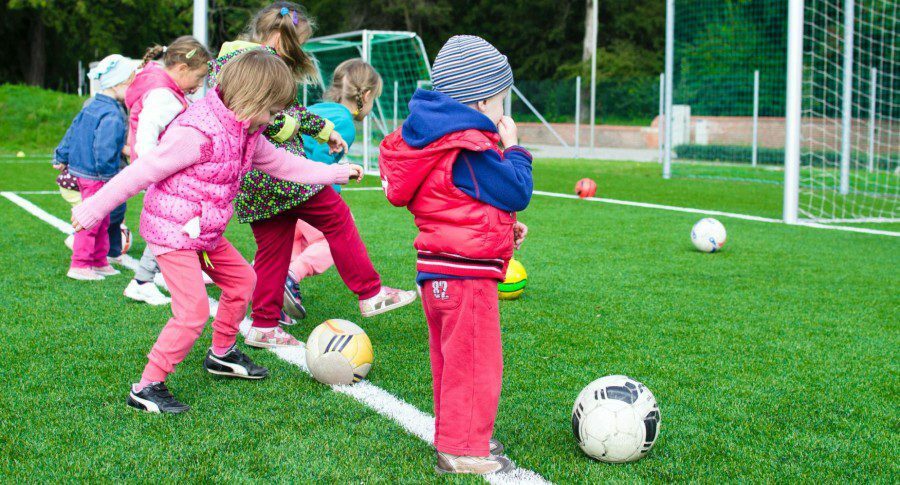The mental health benefits of playing sports
Regular participation in sports, healthy competition, and other active recreation can lead to surprising benefits to mental health and well-being. Athletes and amateurs alike have felt the powerful benefits of sports for mental health, including stress reduction, mood improvement, cognitive enhancement, better self-esteem, and mental toughness.
Sustaining these benefits and keeping players on the field (or court, rink, stage, etc.) can be a challenge, especially as competitive sports and their demanding leagues become a larger part of the American childhood. Sport and performance psychologists dedicate their careers to helping athletes, performers, and amateurs maximize their potential so they can continue to receive the mental health benefits of playing sports.
Playing Team Sports Can Improve Children’s Mental Health
A 2022 study published in PLOS ONE that explored how playing team sports can improve mental health of children and adolescents found remarkable results. Participation in organized team sports leads to the following changes among the study’s 11,235 children aged 9 to 13:
- 10% lower anxious/depressed scores
- 19% lower withdrawn scores
- 17% lower social problems scores
- 17% lower thought problems scores
- 12% lower attention problems scores
In addition, the study found a 20% lower rule-breaking-behavior score in team sport participants compared with children with no participation in sports. Playing team sports helped children become more confident, social, inquisitive, respectful, and engaged. Working to achieve a shared goal combined with physical activity instills at an early age the values of teamwork, camaraderie, and fitness.
Conversely, participation exclusively in individual sports, such as tennis or wrestling, can lead to more mental health challenges for children. While the physical benefits remain, the pressure to succeed and the depression of losing fall completely onto the shoulders of a single child rather than a collective team whose members can support and uplift one another after a disappointing day.
Sport and performance psychologists are uniquely qualified to help children—especially children who do not play team sports—better respond to disappointment or depression when they fall short of their own expectations. Through mental skills training, performance preparation strategies, and focusing techniques, sport psychologists can ensure their patients are well-prepared for the challenges they may face on the field or beyond.
Healthy Competition in Sports Can Help People Focus
According to a study published in Frontiers in Psychology that examined the effects of competition on effort and memory, the presence of a competitor during physical activity can result in faster reaction times, an indicator of increased attention.
The study also found that competition had the opposite effect on nonphysical memory tasks. While physical reaction times increased with competition, memory recall and retention were damaged when facing a human competitor.
As the study shows, healthy competition, even on simple or menial physical tasks, can help us be more direct with our focus and attention. Sport and performance psychologists can help their patients translate that increased focus to nonphysical activity, sustaining those benefits long after the patient steps off the field.
Life Lessons From Sports
The mental health benefits from playing sports can be converted into life lessons that will assist athletes in navigating the working world and life’s other challenges. For example, playing team sports instills a sense of cooperation and respect that can lead to tighter social bonds outside of athletics. The breathing techniques a basketball player uses at the free-throw line to calm their nerves can also be used before making a presentation at work or school. And learning how to accept defeat with grace builds mental fortitude and can help overcome other disappointments that may weigh someone down otherwise.
Those who stick with sports through high school and college also learn how to balance multiple responsibilities at once, and they develop better mental toughness as competition becomes fiercer. Because of this discipline in sports, former student-athletes tend to report that they live more fulfilling lives after school than their non-athlete counterparts.
Support Mental Health in Sports With a Sport and Performance Psychology Degree
Saybrook University offers an integrated health care education that uses an evidence-informed approach to wellness and mental health in sports. The Sport and Performance Psychology degree programs can be the gateway to a rewarding career helping patients flourish in and out of sports settings.
Grounded in psychophysiology, our M.S. in Sport and Performance Psychology program helps students gain a comprehensive understanding of how the brain and body work together to influence human behavior and how those interactions can affect overall performance. They will learn the crucial skills in areas that make up the backbone of effective sport and performance psychology:
- Biofeedback
- Psychopathology
- Optimal functioning
- Athletic counseling
- Professional and ethical issues in sports
Sports play an important role in the growth and development of children, athletes, and amateurs and can lead to surprising and powerful mental health benefits.
Visit saybrook.edu today to learn more.
